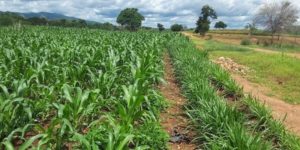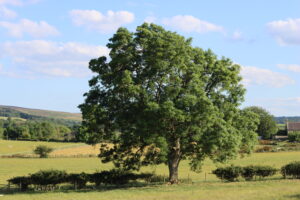New app can improve crop yield and protect the environment
A new app will encourage farmers to adopt environmentally friendly ways of protecting their crops from pests.
African smallholder farmers face major challenges from weeds such as Striga and insect pests such as fall armyworm.
Fall armyworm is a serious threat to food security and livelihoods and already causes crop losses worth an estimated $3bn a year.
However, new ‘push-pull technology’ provides a solution while avoiding the need to use harmful and expensive pesticides.
Push-pull technology is a scientific method of planting crops alongside particular species of forage grasses and legumes, which repel pests and suppress weeds.
But a major challenge is how to communicate advice and information about this crop management technique to millions of smallholder farmers in sub-Saharan Africa.
To help address this challenge, a new mobile phone app – called Push-Pull – has been launched by Agape Innovations Ltd, in collaboration with a team of scientists from the University of Leeds and Keele University.

Early adopters have had success with the technique, reporting five times less fall armyworm damage and a doubling or even tripling of crop yield.
It also reduces the environmental impact of farming by improving soil quality without inorganic fertilisers and pesticides.
Principal investigator Dr Steve Sait, from Leeds’ School of Biology, said: ‘The push-pull method of pest control is decades old and is used successfully by thousands of smallholder farmers across Africa.
‘We hope that this collaboration, and this new app, can help us to extend knowledge of this technique to potentially millions of other farmers who could be benefitting from it. Compared to chemical pesticides, push-pull costs less money to the farmer results in less damage to their crops and avoids harming other insect species that play valuable roles in the ecosystem.
‘We consulted widely with farmers in Kenya and I’m excited to see how their contribution has made the app user friendly and could lead to more uptake of push-pull farming.’
Photo Credit – AFRICAP











